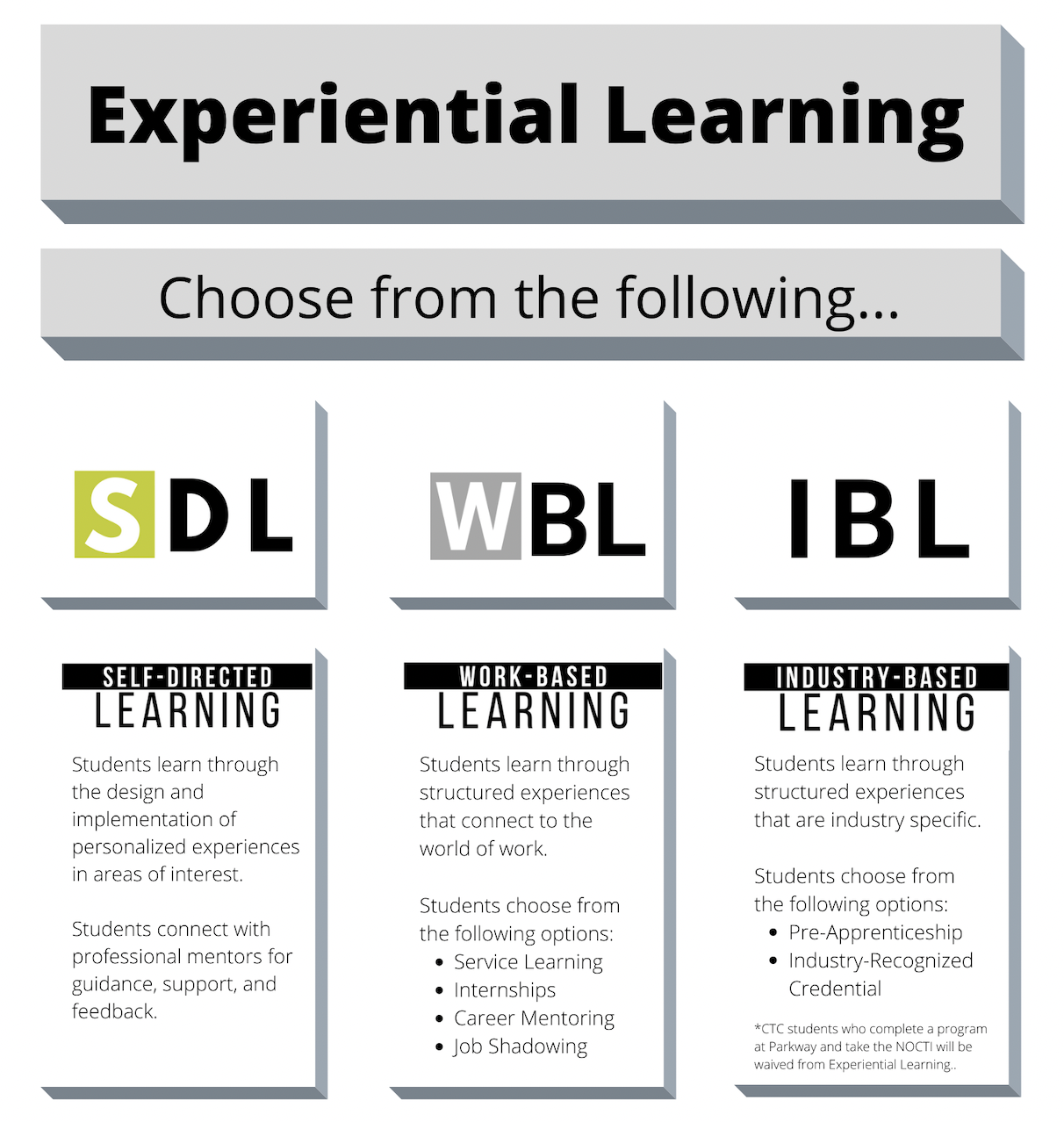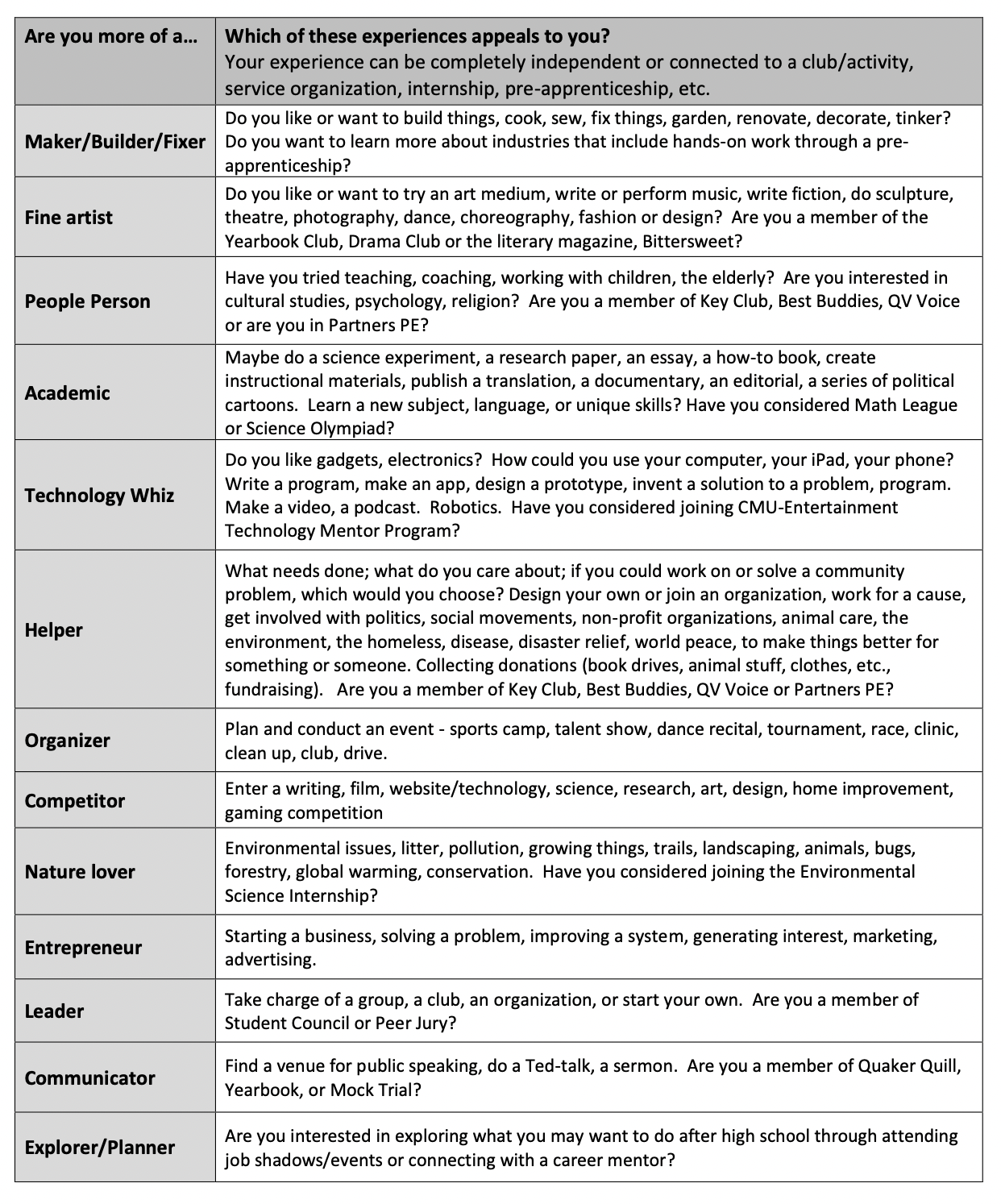Experiential Learning
At QVHS, students engage in highly personalized experiences to develop their interests, strengths, and skills in order to understand how they fit within the broader context of learning, work, and life. Students can choose to engage in Self-Directed Learning, Work-Based Learning, or Industry-Based Learning to satisfy this graduation requirement.
What is Experiential Learning?
Benefits of Experiential Learning
Steps in Experiential Learning
Choosing an experience...
- Self-Directed Learning (SDL) is designed for students who are interested in creating their own experiences or building off of a club/activity that they are already involved in.
- Work-Based Learning (WBL) is designed for students who are interested in service work or an internship with an organization or business. OR, for students interested in learning more about a career area through job shadows or career mentoring.
- Industry-Based Learning (IBL) is designed for students who are interested in learning about an industry through a pre-apprenticeship or earning an industry-recognized credential.
How will the experience be assessed?
Students will earn Micro-Credentials for mastered competencies and skills they can demonstrate with evidence as a result of their experiences. Micro-Credentials will be included on student transcripts. Students will share their learning at a Press Conference.
What is the timeline?
Experiential learning...
- Increases student engagement
- Encourages a growth-oriented mindset
- Bridges the gap between school learning and real-world learning
- Increases student confidence
- Increases student efficacy
- Enhances retention of new learning
- Increases self-awareness of individual interests and strengths
- Personalizes learning





